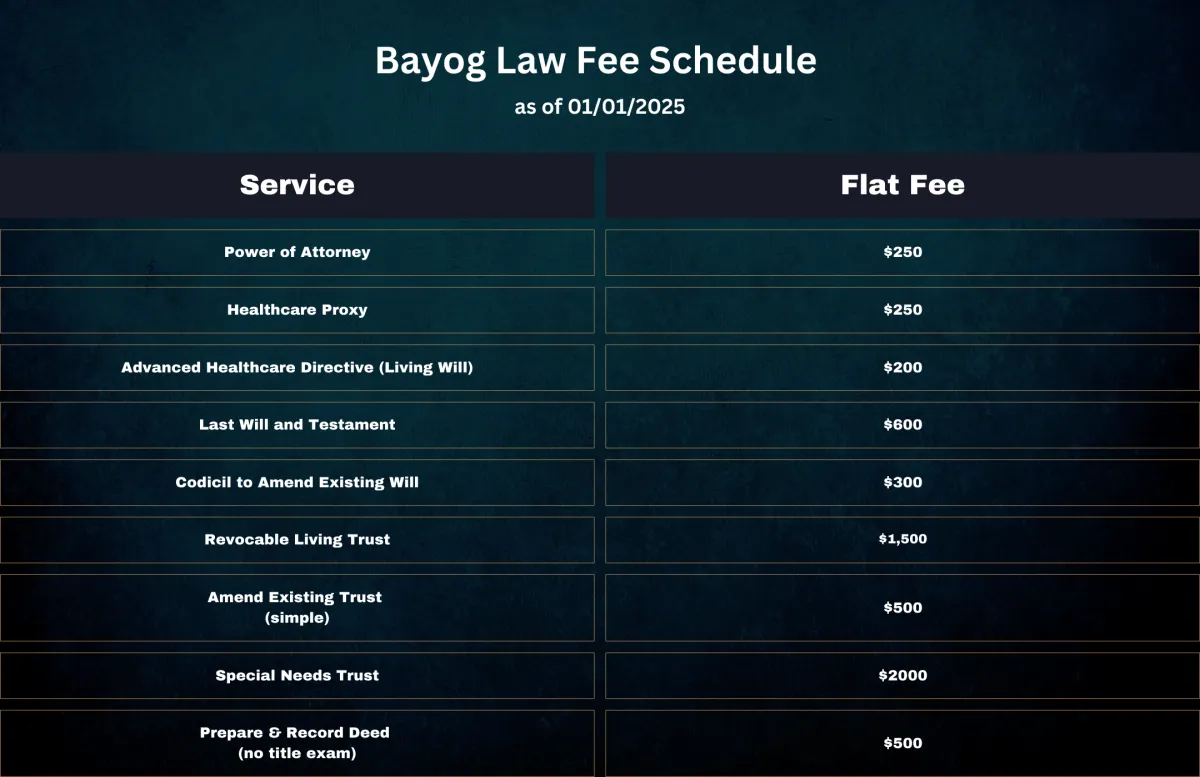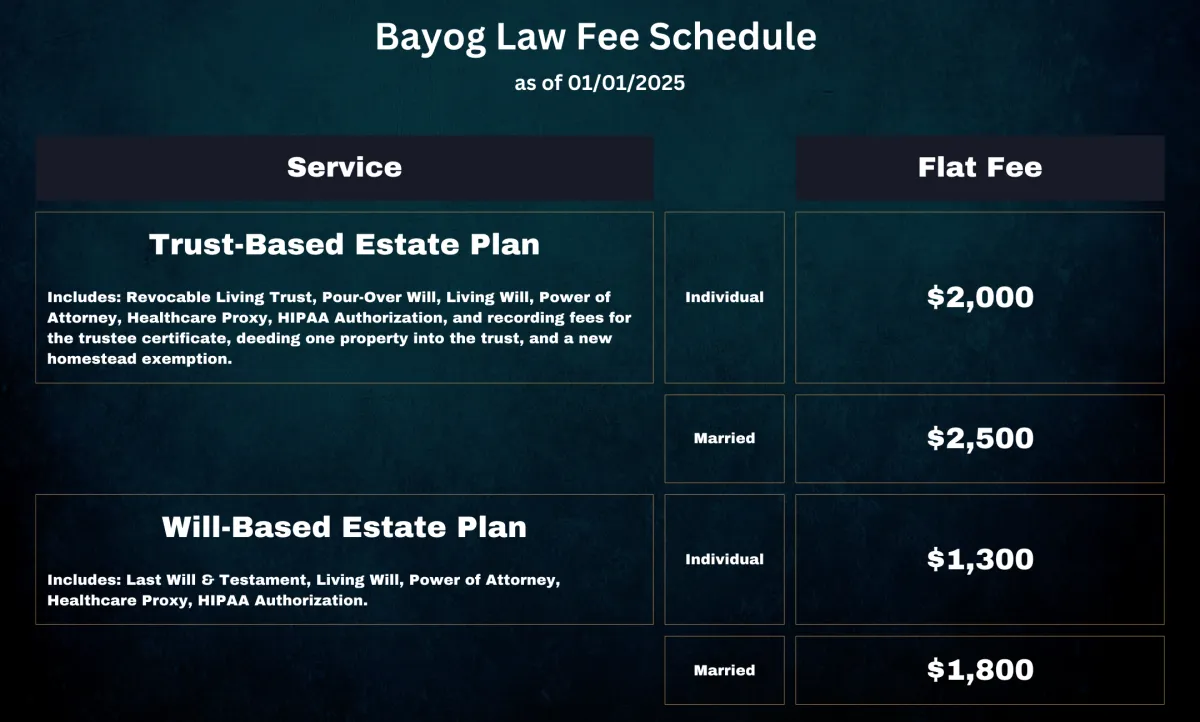
Transparent, Up-Front Legal Fees
At Bayog Law, we believe estate planning should be clear, approachable, and free from surprises — including the pricing.
We proudly offer flat-fee packages for many of our most common estate planning services, so you’ll always know what to expect. Whether you're creating a simple will or a comprehensive trust-based plan, you'll find our fees reflect both value and peace of mind.
Scroll below to view our current flat-rate fee schedules.
You’ll find pricing for individuals, couples, and families — including essential documents like wills, trusts, powers of attorney, and health care proxies.
Hourly Work
For services not listed in the flat-rate schedule — including custom estate planning, advanced drafting, probate or guardianship matters, real estate-related work, or consultations outside the scope of a package — we bill at our hourly rate:
$75 to $250 per hour, depending on the complexity and level of attorney involvement.
Discounts & Payment Options
10% Discount available for veterans and public school teachers
Flexible payment plans available — we’ll work with you
We accept all forms of payment, including debit, credit, ACH, Venmo, PayPal, and more
Our Mission: Accessible Estate Planning for Everyone
We’re committed to making high-quality estate planning accessible and affordable for all. Whether you're just getting started or have put off planning for too long — we’ll meet you where you are, explain your options, and guide you every step of the way.
Flat Rate Individual Documents

Flat Rate Estate Planning Packages

Need Help Choosing a Plan?
Let’s talk — no pressure, no confusing legal talk.
FAQS
What is estate planning and why is it important?
Estate planning is the process of organizing and managing your assets and affairs to ensure they are distributed according to your wishes after your death. It includes creating documents such as wills, trusts, powers of attorney, and healthcare directives. Estate planning is important because it provides peace of mind, protects your loved ones, minimizes legal complications, and ensures your wishes are honored.
What is the difference between a will and a trust?
A will is a legal document that outlines how your assets will be distributed after your death and can appoint guardians for minor children. A trust, on the other hand, is a legal entity that holds and manages assets on behalf of your beneficiaries during your lifetime and after your death. Trusts can help avoid probate, provide tax benefits, and offer greater control over how and when your assets are distributed.
When should I update my estate plan?
You should review and update your estate plan regularly, especially after major life events such as marriage, divorce, the birth of a child, the death of a beneficiary, or significant changes in your financial situation. Keeping your estate plan current ensures that it accurately reflects your wishes and provides the necessary protection for your assets and loved ones.
What areas do you serve?
Now serving all of Essex, Middlesex, Suffolk, Norfolk, and Bristol counties including
Amesbury, Andover, Beverly, Boxford, Danvers, Essex, Georgetown, Gloucester, Groveland, Hamilton, Haverhill, Ipswich, Lawrence, Lynn, Lynnfield, Manchester-by-the-Sea, Marblehead, Merrimac, Middleton, Nahant, Newbury, Newburyport, North Andover, Peabody, Rockport, Rowley, Salem, Salisbury, Saugus, Swampscott, Topsfield, Wenham, and West Newbury.
Hours:
Monday – Friday
9:00 AM - 5:00 PM
Hours:
Monday – Friday
9:00 AM - 5:00 PM